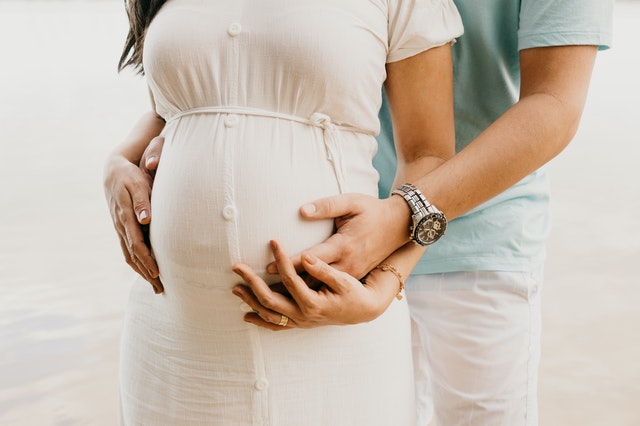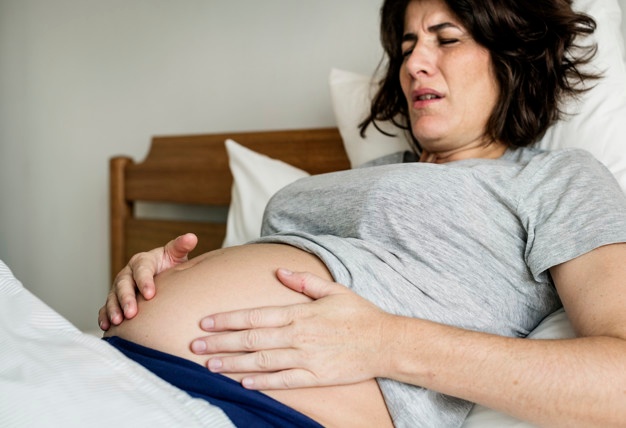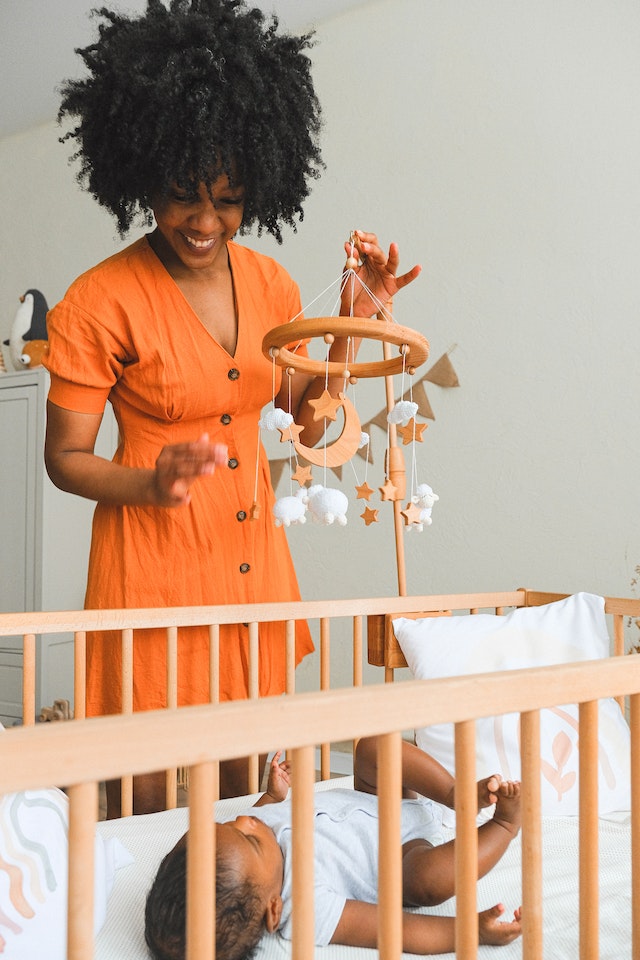After months of waiting, now the time is near to your baby’s arrival. It is no harm to get bit ready before your baby steps in your life. In this blog, we will discuss all labour, the anxiety attached to it, and the things you must follow before going for labour.
 Labour
Labour
Childbirth is the best thing that happens to a mother. This feeling continues to progress at the arrival of every baby birth, no matter if the baby is the first one or the last one. Every pregnancy matters.
The experience of enjoyment is often neglected under the clouds of anxiety and fear attached to labour. Therefore, you need to have the right knowledge and early preparation to avoid labour stress. Also, your doctor is of great help during this process, and make sure to consult your doctor. You should let them know your fears or hopes related to delivery so that they can prepare well to give you a wonderful labour experience.
At the time of labour, the baby adjusts according to the surroundings inside the womb, slides down the uterus, and is born as a new life in this world. Remember, the care you give in your antenatal period is reflected by the smooth labour you experience at the end.
10 things to do before the labour
Follow the below-listed things before your baby steps out in your life to make the labour process simpler and enjoyable.
-
Make sure you have prepared your hospital bag with all the necessary things you feel you’ll be needing in the hospital.
Your hospital bag must consist of these items:
- A pair of slippers, clothing to wear on your way back home, socks to keep you warm, a nursing top to carry breastfeeding the easy way, and an additional robe.
- Stack another set of clothing to help you change if your baby vomits or spits on you.
- Throw in a warm blanket in your hospital bag to assure your baby gets the warmth it needs.
- Assure you have all of your important personal toiletries.
- Don’t forget to keep your written copy stating the birth plan and also, stack in the breathing tips, if you have any of them, by your birthing lectures.
As you are willing to bring the comfort of your home to your hospital ward make sure to pick up a comfortable body pillow, essential oils, or even a set of personal speakers if you feel the need of having them at the time of labour.
Also Read: Ovulation- how long does it last?
Remember to install an additional baby seat in your car, otherwise, you won’t be permitted by the hospital to leave. And, finally set a crib, table for changing diapers, and other necessary things you feel your baby would need, beforehand.
-
After your hospital bag is set, have time for yourself. Do stuff that feels good to you. Call your friends home if they make you happy. It will help you lower your anxiety levels making you free of any childbirth stress. Go to a spa or play music or cook something fascinating. The main aim is to keep yourself happy at all costs.
Don’t feel distressed and be ensured that you have got the best team of doctors to work with your hopes and fears related to delivery in the best way. You can even choose your doctor from the list of best doctors around you. Be comfortable and don’t stress yourself at any point.
Some activities like writing a letter to your baby, downloading audiobooks, and sorting out ways for announcing the birth of your baby to the world, can make you forget your distress and enjoy your phase.
Also Read: How to Track your Basal Body Temperature and Ovulation?
- Stock up your medicines, additional needs of your baby, and fill the pantry to assure you have everything on the spot when anything is required after the delivery at your hands. Stock the nursery well with all the needed items like diapers, swaddle blankets, sleep sacks, foodie PJ’s, and onesies.
- Instruct your helpers to clean your house well. You can assist them if you feel, but remember not to overwork or overstress yourself with the home cleaning. Set your house in a way that it has changing supplies on every floor with the needed nursing supplies. Make sure your carpets are cleaned and disinfected to assure the safety of your baby.
- Confirm the availability of your doctor or the midwife. If you feel, you want to change them, go ahead with the best options present around you. Check on your birth plan and also check on the companions you want in your hospital room during delivery. Don’t create a mess there as to who is needed and who is not. It will avoid stress during your delivery.
- Spend some time with the other kids, if you have any. Don’t worry, if it’s your first baby. Spend some time with your partner to feel at comfort and enveloped in love. You can also arrange a prenatal massage under the expert hands.
- Don’t forget to have some alone time. Don’t overthink when you’re alone. Try to focus and calm your anxious feelings by saying, “Everything, would be sorted out in the best possible ways”. You can even practice your affirmations or lay your hands on the gratitude journal to make you happy and feel positive.
- Make sure to have your baby’s clothes cleaned and disinfected to assure the safety of your baby and the sensitive skin it has.
- Opt for freezer meals so that you don’t have to work extra after the delivery. Also, your husband can help you with heating those freezer meals and you can have a good time together.
- Invest in a good nursing outfit including lingerie. Also, you can see if the breast pump is covered in your insurance or not.
We hope the above-listed points help you have an exciting delivery. Don’t stress out. We believe in you and we trust that you can do it properly.

10 SIGNS TO LOOK FOR WHEN IN LABOUR
The due date is near, and you are probably waiting in happy anticipation for the D-day. The day you have been waiting for months while decorating the nursery of your little one. You are about to become a mother! So how to know when you are in labor, and this is not just a false alarm. It is especially difficult for women experiencing labor for the first time. Predicting your labor or noticing your pre-labor signs helps you be prepared and avoids the last-minute rush.
Every birth is different, so it might be tricky to predict your labor. But there are some tell-tale signs that you are about to meet your little one.

Labor sets off with the uterus’ contractions, which pushes the baby out of the mother’s womb and results in childbirth.
If you are nearing your due date, you might wonder how to confirm when you are in labor. Here are some signs which help you determine when you have entered the pre-labor stage. The symptoms can start showing from a month or a day before the labor.
Related Article: Freezing Embryos: A Lot Of People Are Turning For This Option
- Your baby drops or descends into your pelvis.
Baby drop is a case that especially occurs in women’s first pregnancies, and the baby will start descending into the pelvis. The baby drop happens around two to four weeks before the labor begins. But the duration before the labor varies from case to case.
In the later pregnancies, this does not happen unless you’re already in labor. Your kid is getting in a position to make his way out, preferably with his shoulders down and his head out.
You might notice that you waddle even more than before. And you might still make frequent toilet breaks as you have probably been doing in the third trimester because your baby’s head is now pressing down your bladder.
Suggested Topic: Announcing Pregnancy: These Are The 15 Best Ways To Do That
- The cervix dilates.
During your weekly home pregnancy check-ups, your provider may measure and track dilation and through an internal test.
But pregnancies progress differently, so do not be disheartened in case of slow or no dilation.
- Increase in cramps and back pain.
Particularly if this is not your first pregnancy, you may feel some cramping and pain in your lower back and pelvic area as your labor nears. Your muscles and joints stretch and shift in preparation for birth.
- You are clumsier
Your body releases the relaxin hormone during your pregnancy, which allows your ligaments to ease up a little. This hormone is the reason why you felt clumsy in the last trimester.
Before you go into labor, you can find that the joints around your body feel comfortable. It is just nature’s way to open your pelvis to your little one to make his way into the universe.
Also Read: How To Talk To Your Partner About Fertility Issues
- Diarrhoea.
As the muscles in your uterus are relaxed preparing for birth, so are the other muscles in your body—including those in the rectum. And that can escalate to diarrhea, which is a severe labor symptom that you might have encountered at other periods during pregnancy.
- Weight loss or weight stagnates.
Weight gain is often reduced at the very end of pregnancy. Some mothers even lose a few pounds. It is normal and will not affect your child’s birth weight. Your weight is falling due to reduced levels of amniotic fluid, more toilet breaks, and maybe even more exertion.
- Feeling tired or feeling the need to organize.
The big belly, combined with your cramped bladder and other organs, will make it difficult to get a decent night’s sleep during the last days and weeks of pregnancy. So pile up your pillows and take your naps while you can, if at all possible.
That is until you feel the reverse of being super sleepy. Some moms get a surge of enthusiasm called nesting instinct, and you cannot fight the compelling desire to tidy up and organize everything in reach.
Early labor symptoms: the days or hours before labor.
- Losing your mucus plug and having thickened vaginal discharge
You may note your mucus plug comes out in one big piece or many little ones, but you do not get a sight of it at all because certain women won’t lose it before birth.
You will see thickened vaginal discharge in the last days before your labor. This thickened, pinkish discharge is considered a bloody display, a clear sign that you are going into labor.
But labor may still be a few days away without contractions or dilatations of 3 or 4 centimeters.
- You feel stronger, more frequent contractions.
Contractions are a sign of labor, but in some cases, they are not. Braxton Hicks contractions or practice contractions is a fake alarm. Even though you feel the squeeze when the muscles in your uterus tense up in anticipation for their big moment: force the baby out.
In case of real labor:
- Contractions get progressively stronger.
- Despite changing positions, labor contractions do not go away.
- True contractions develop, getting more intense and uncomfortable as time progresses, frequently falling into a regular pattern.
- Your water breaks
The water break is one of the last signs of labor faced by most women—and it happens to just about 15 percent of births or less. So please don’t wait for it.
Suggested Article For You
WHEN TO GO TO A DOCTOR? FROM PREGNANCY TILL BIRTH
Testing positive for pregnancy is beautiful as well as exciting. But the first thought that comes to your mind is when to visit your doctor? Here we have highlighted some points, from the beginning of your pregnancy journey to the final delivery. Read More:
![]()









